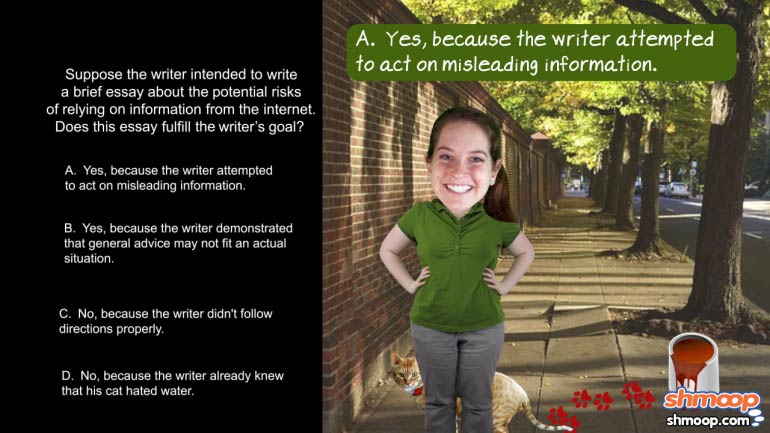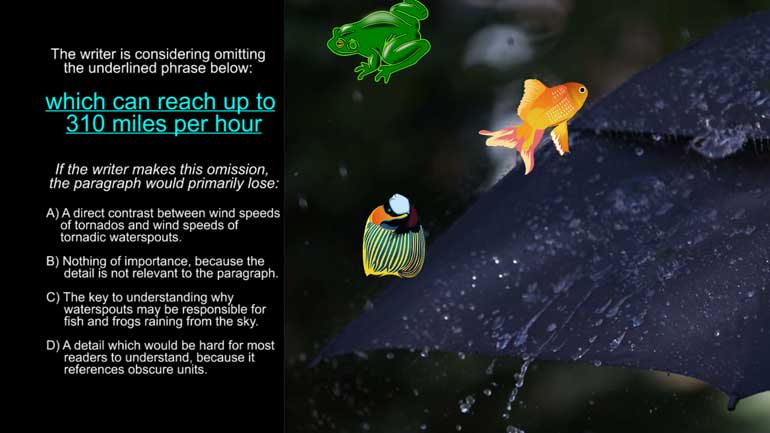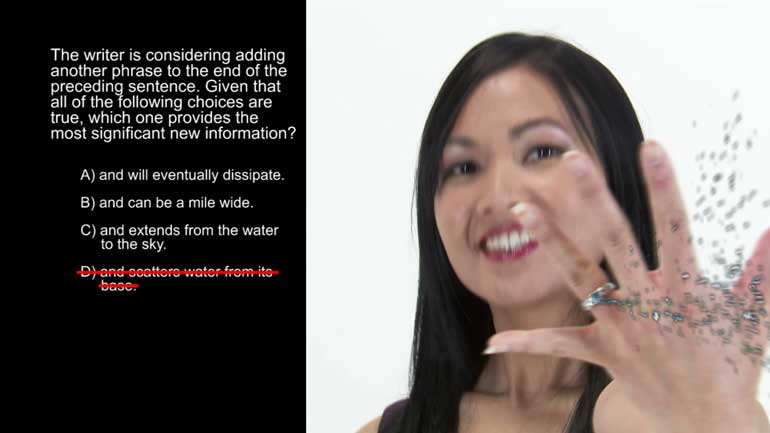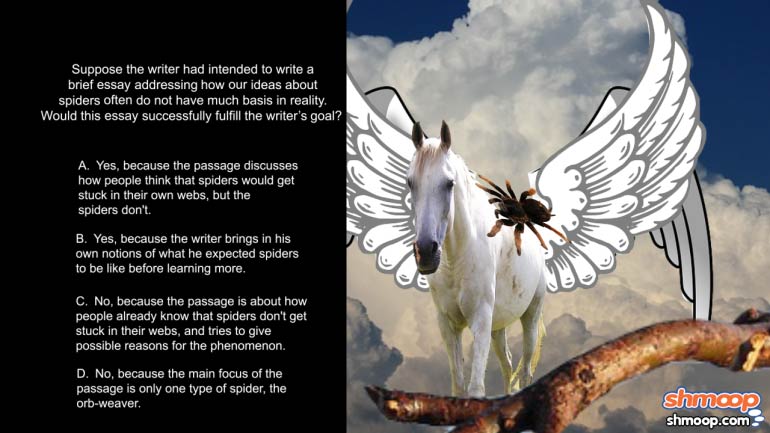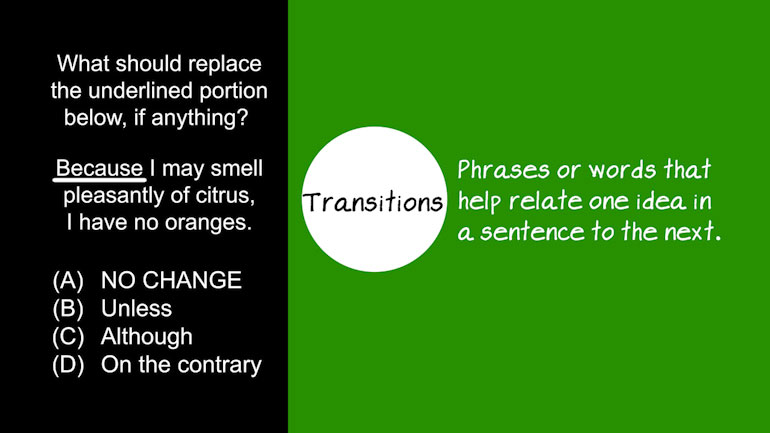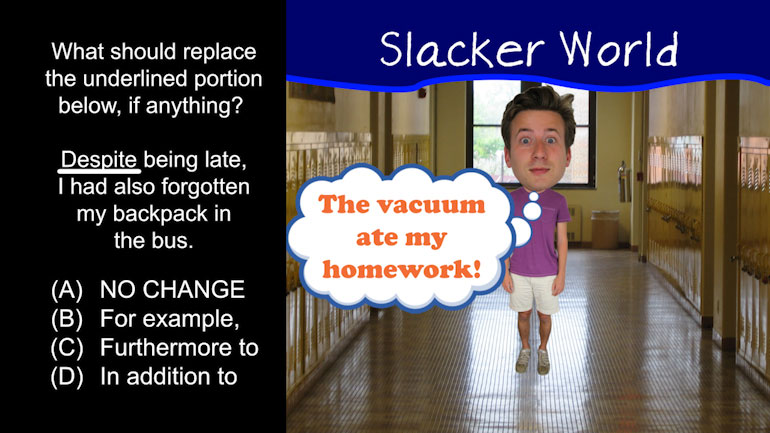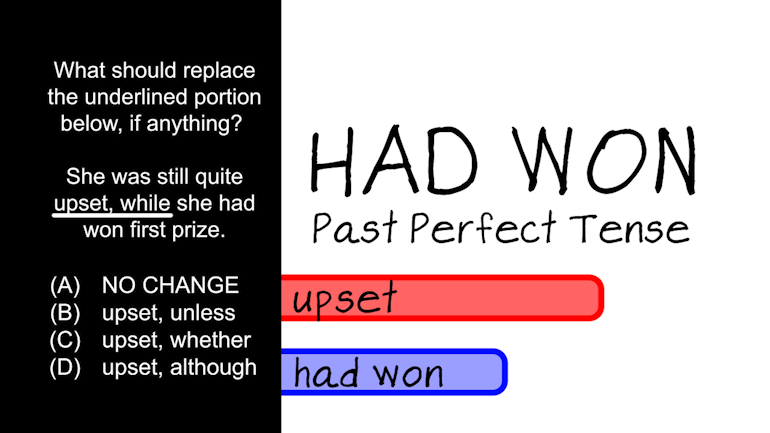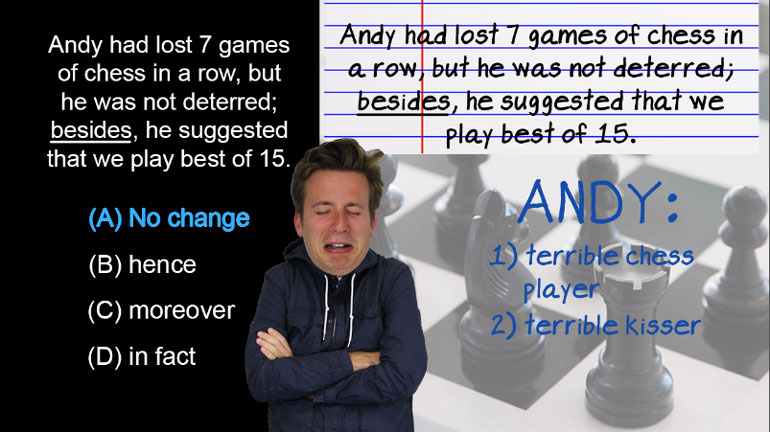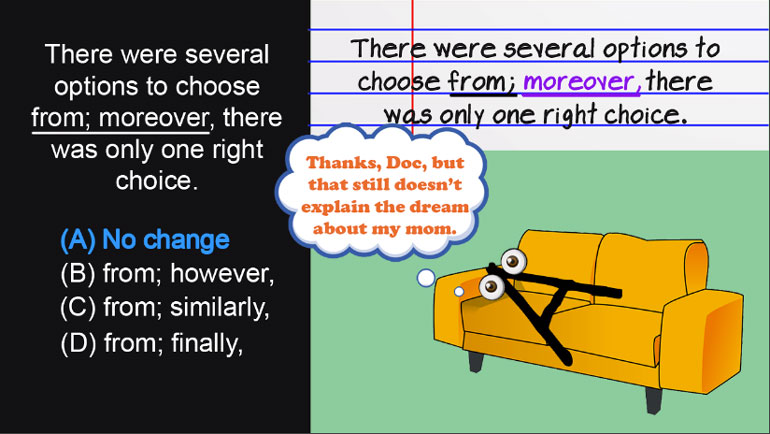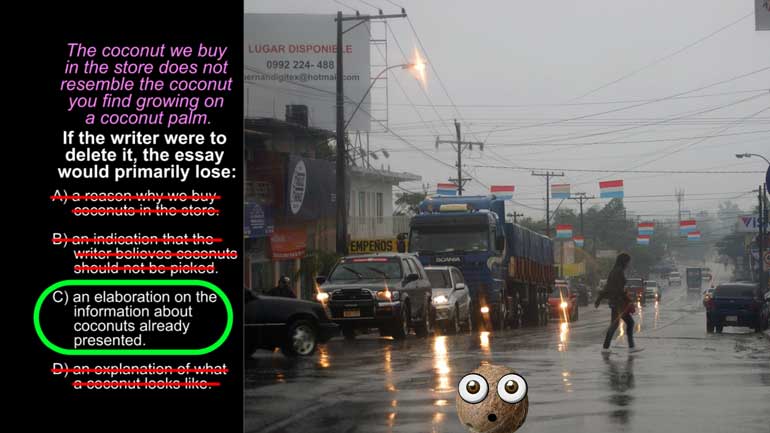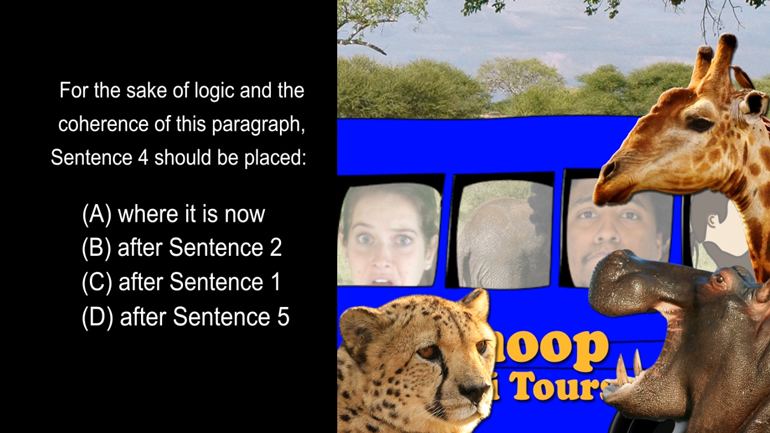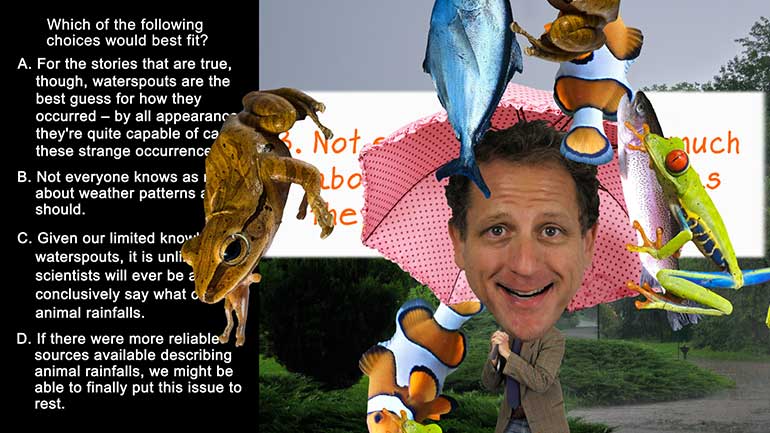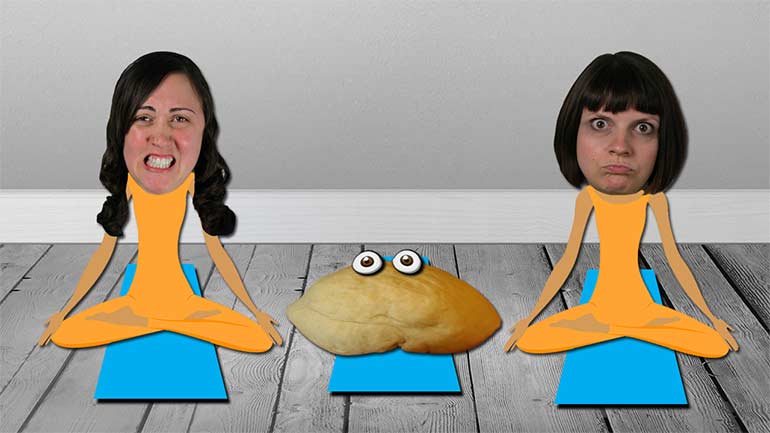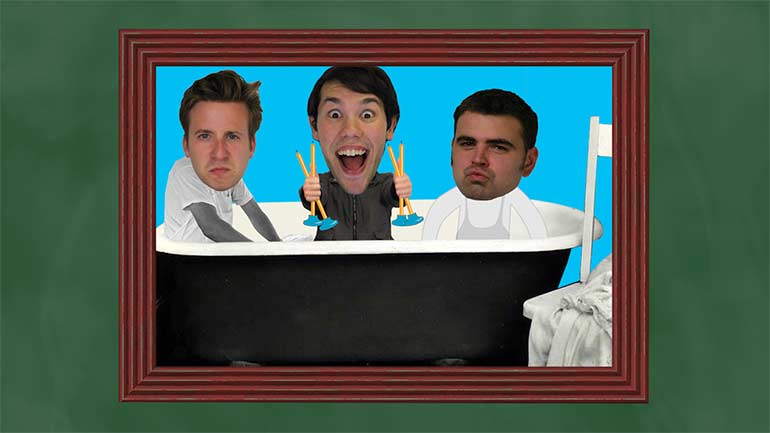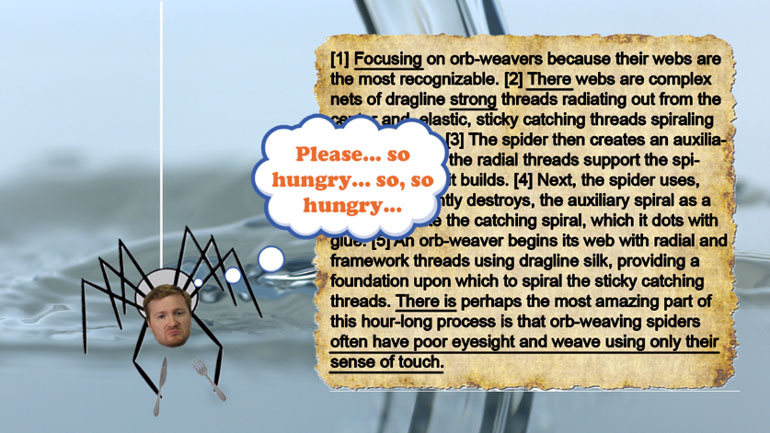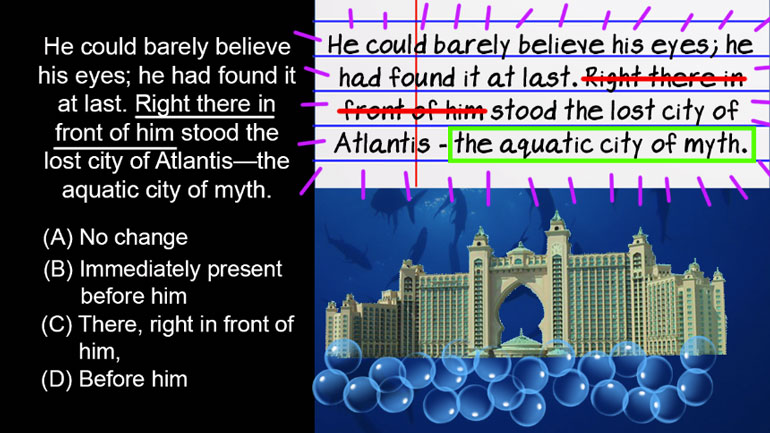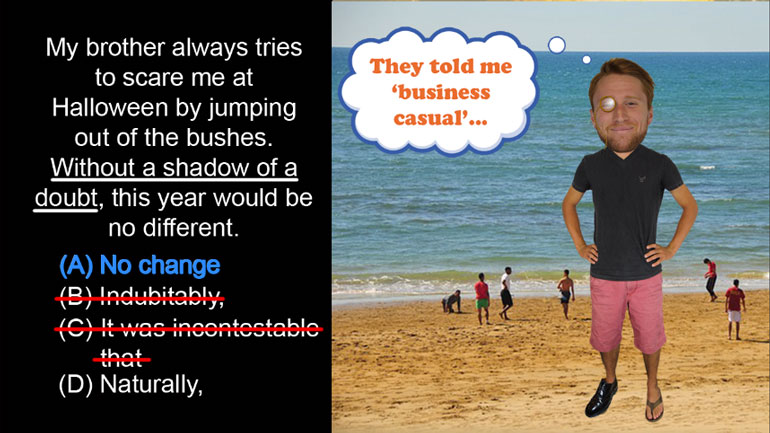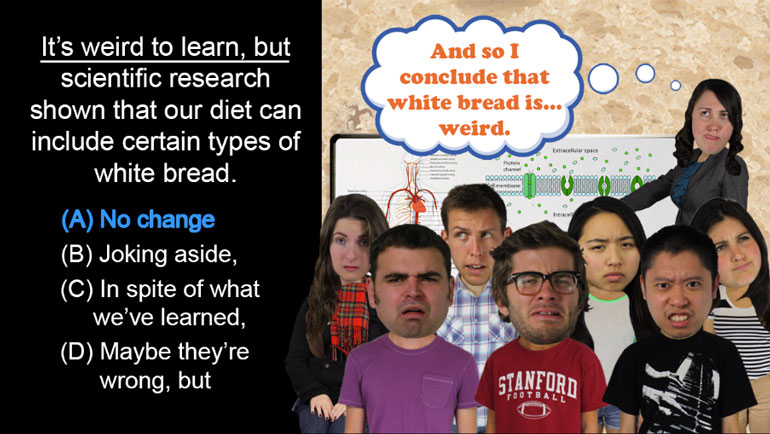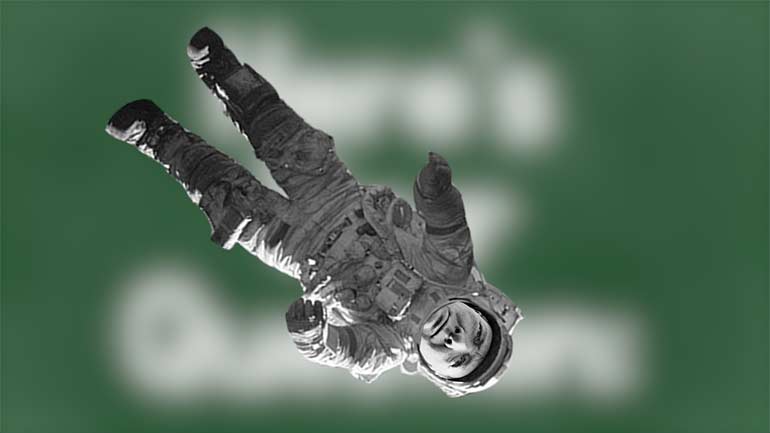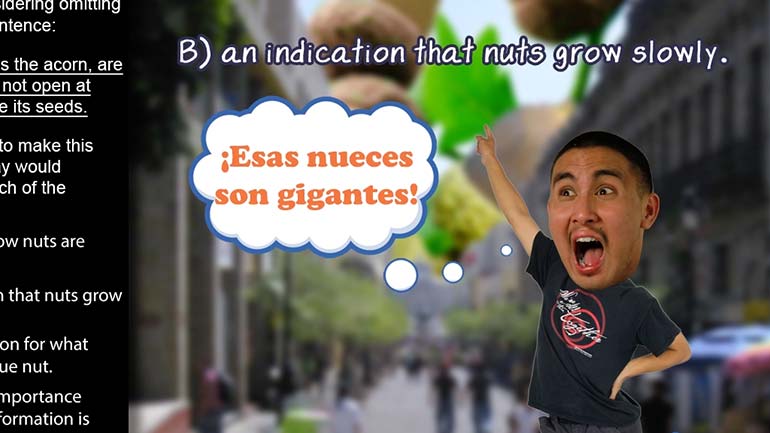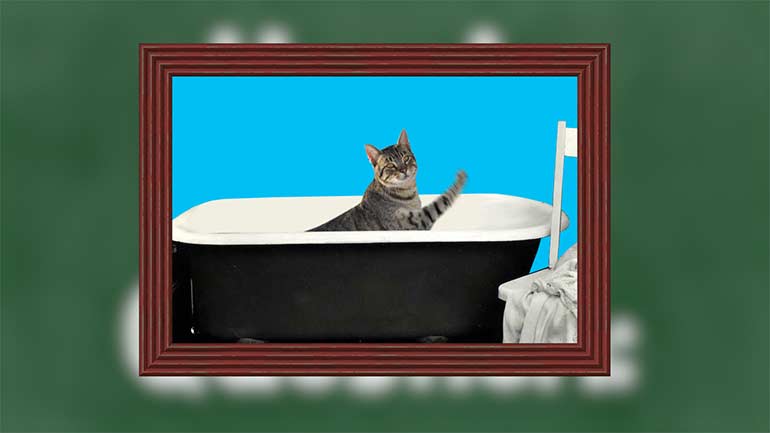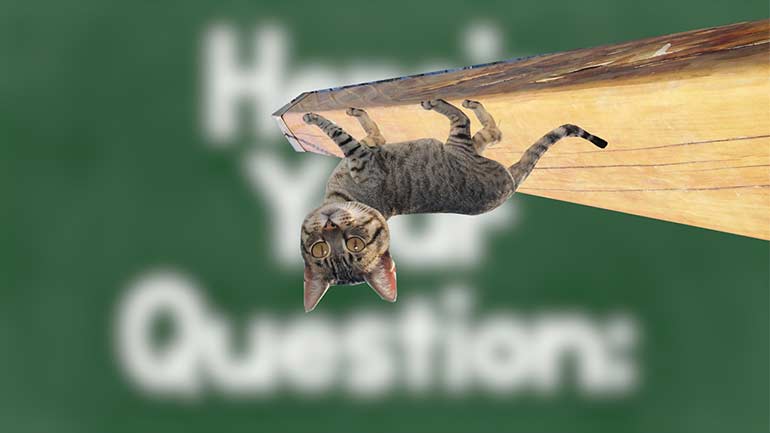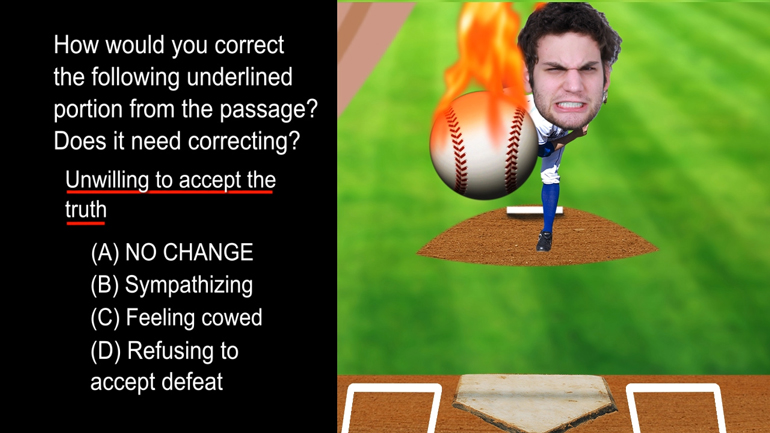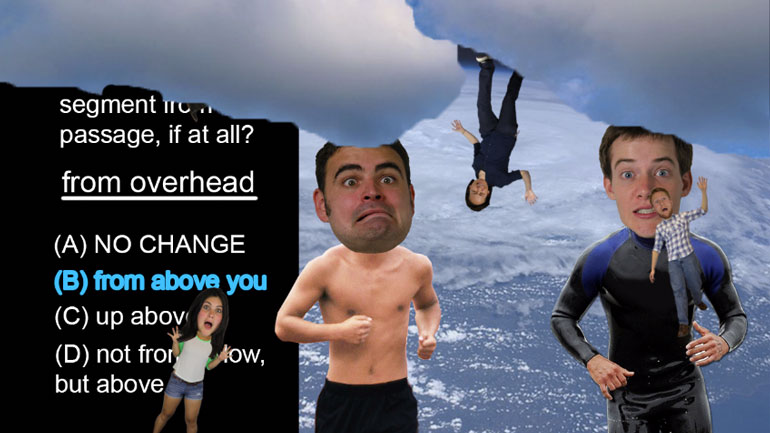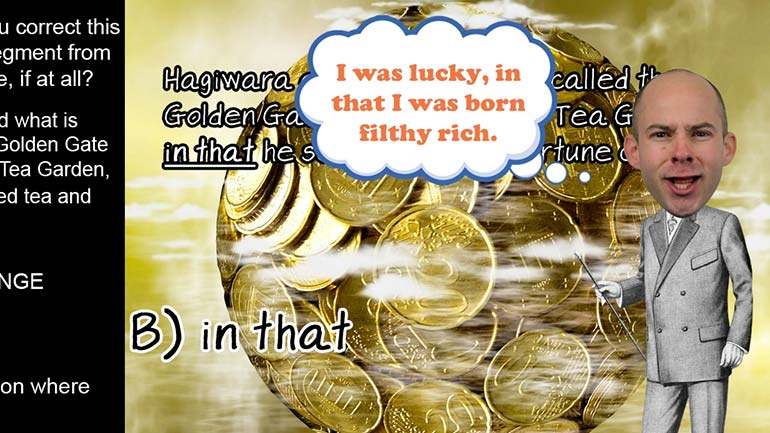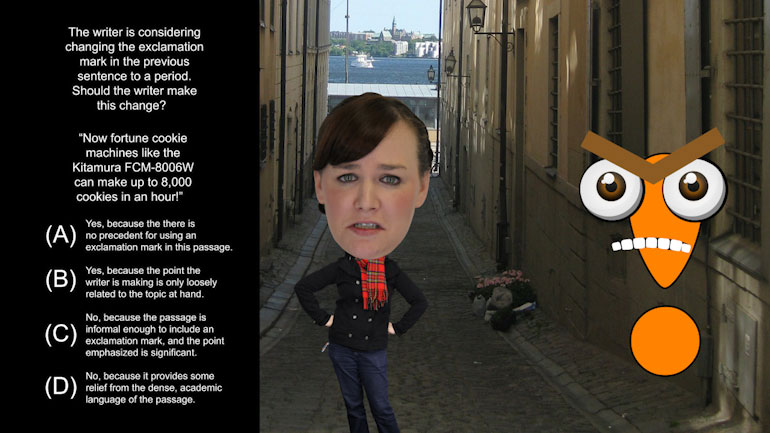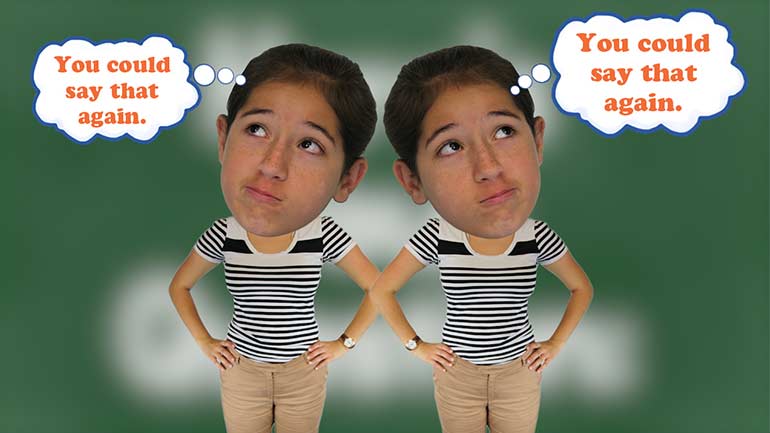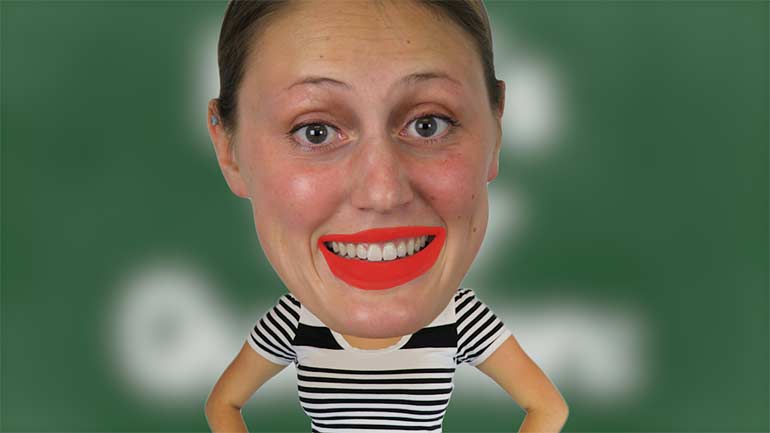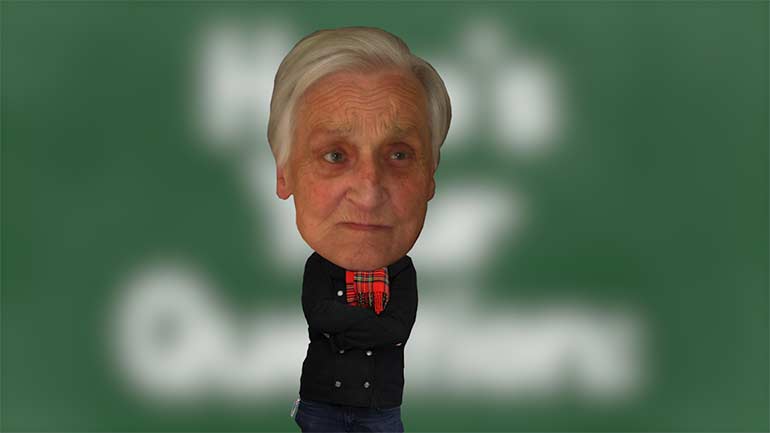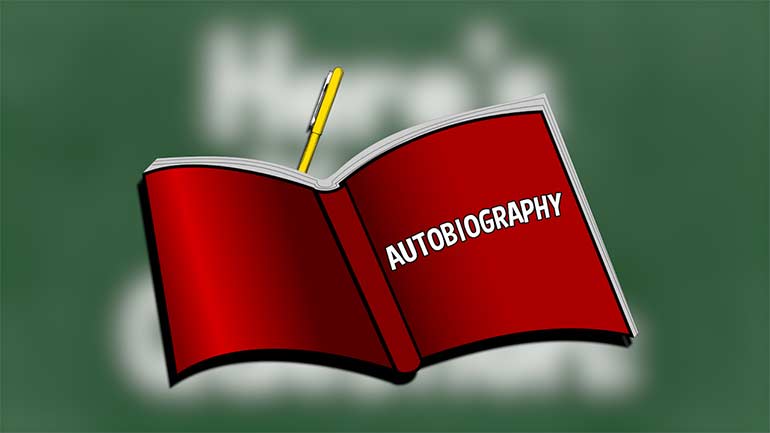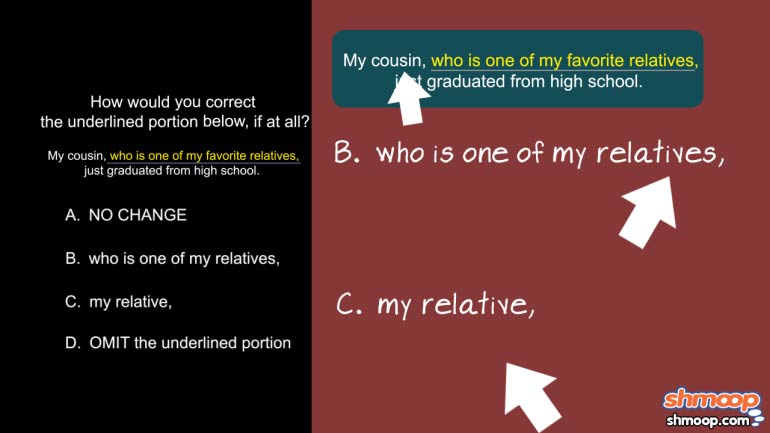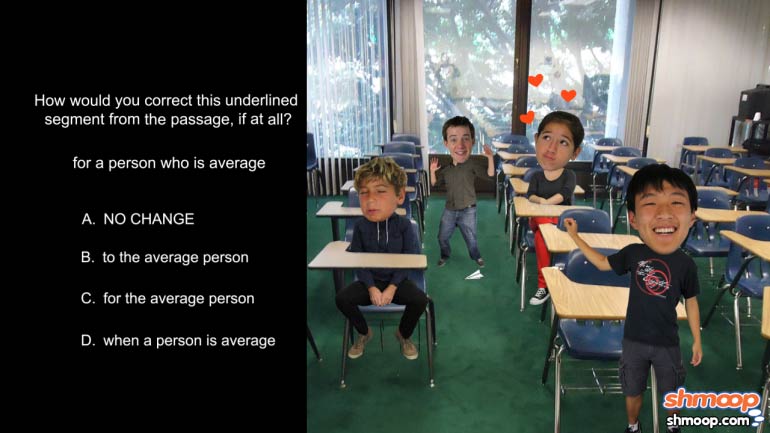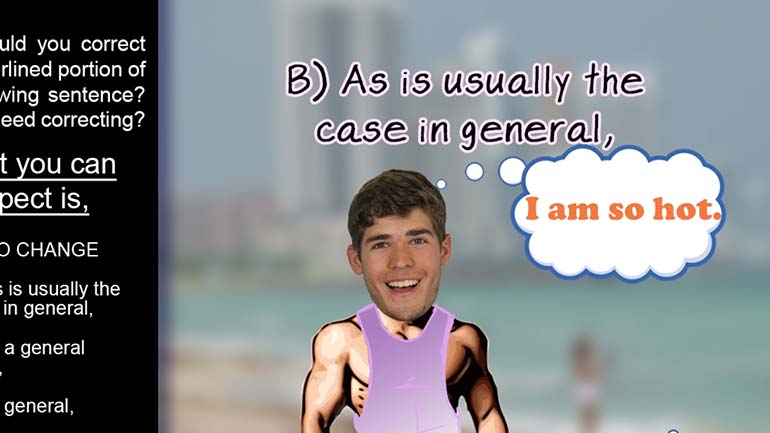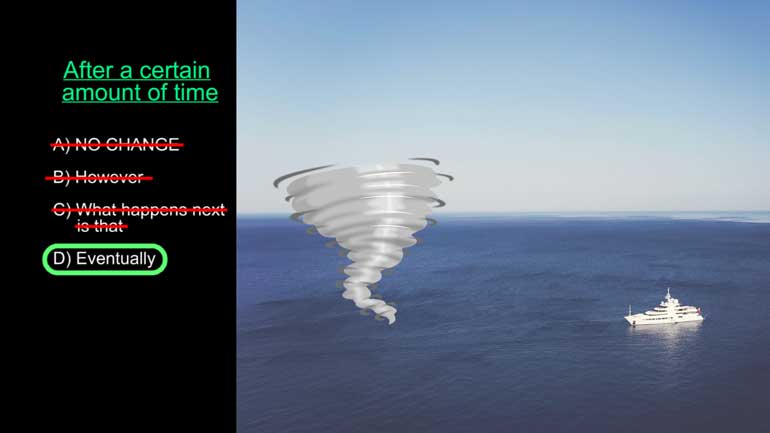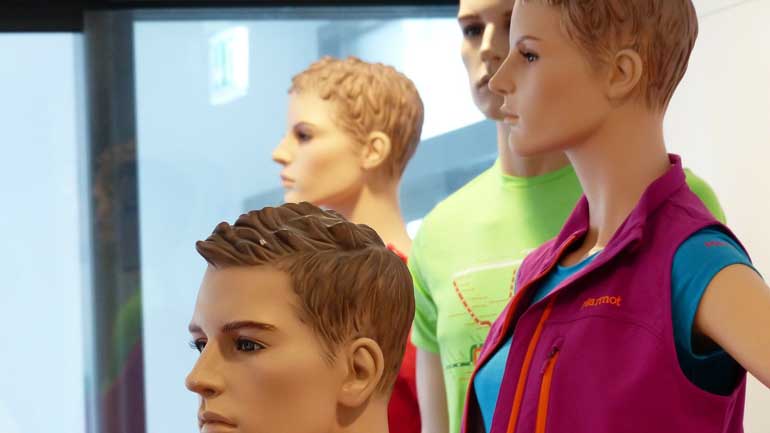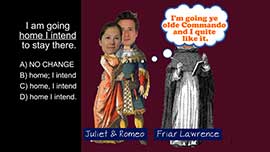ShmoopTube
Where Monty Python meets your 10th grade teacher.
Search Thousands of Shmoop Videos
Rhetorical Skills Videos 50 videos
ACT English: Passage Drill 2, Problem 11. Which of the following sentences would make the most effective transition?
In this ACT English passage drill determine if the writer of the passage may or may not have achieved their proposed goal.
ACT English: Passage Drill Drill 3, Problem 2. What would the paragraph lose if the writer omits the underlined phrase?
ACT English 5.11 Passage Drill 243 Views
Share It!
Description:
ACT English: Passage Drill 5, Problem 11. If the writer made the change described, what would the essay primarily lose?
Transcript
- 00:04
Here's your Shmoop du jour, brought to you by nearsighted spiders. Wow, imagine what
- 00:08
the optometrist bill would be like for a creature with eight eyes.
- 00:23
The writer is considering replacing the underlined phrase...
- 00:26
often have poor eyesight and weave using only their sense of touch
- 00:31
with...
Full Transcript
- 00:33
do not see well
- 00:34
If the writer made this change, the essay would primarily lose what?
- 00:39
And here are the potential answers...
- 00:45
This question requires us to not only take a close look at the underlined portion, but
- 00:49
to also have a good idea of the information contained in the passage as a whole.
- 00:53
Thinking caps will be required. Luckily ours just got back from the dry cleaners.
- 00:58
Answer (A) claims that the writer would lose info about the many strands of thread that
- 01:02
go into the weaving of spiders' complex webs.
- 01:09
This is wrong on two levels...
- 01:10
1) the underlined portion says nothing about the makeup of spider webs
- 01:13
and...
- 01:14
2) this info is thoroughly covered earlier in the passage
- 01:18
(B) tells us that this substitution will eliminate confusion by cutting out a new term that's not explained.
- 01:24
Unless one considers "poor eyesight" a confusing concept, this is also incorrect.
- 01:30
The underlined segment doesn't throw anything too mind blowing at us, so we can nix choice (B).
- 01:36
Choice (D) says the article will no longer contain a comparison between spiders and other insects.
- 01:41
However, the underlined portion says absolutely nothing about other insects; its focus is
- 01:46
solely on spiders.
- 01:47
(Which can be unhealthy if taken too far...)
- 01:50
In any case, (D) is off the list. The correct answer is (C).
- 01:54
The main difference between the current phrase, "often have poor eyesight and weave using
- 01:58
only their sense of touch," and the new one, "do not see well," is that the first phrase
- 02:04
spells out the reason why the poor eyesight is relevant—spiders can't even see the complicated
- 02:10
webs they create.
- 02:13
The rumor is that a spider bit a witch many, many years ago, and ever since, spiders have
- 02:16
been cursed with the inability to see their own webs.
Related Videos
ACT English: Punctuation Drill 2, Problem 2. Where should the semi-colon be placed?
ACT English: Punctuation Drill 3, Problem 1. How should this sentence be changed so that it is grammatically correct?
ACT English: Punctuation Drill 3, Problem 2. How should we properly hyphenate the words in this sentence?
ACT English: Punctuation Drill 3, Problem 4. Which choice best formats this list of items?
ACT English: Punctuation Drill 2, Problem 1. Which choice of punctuation best completes the sentence?

